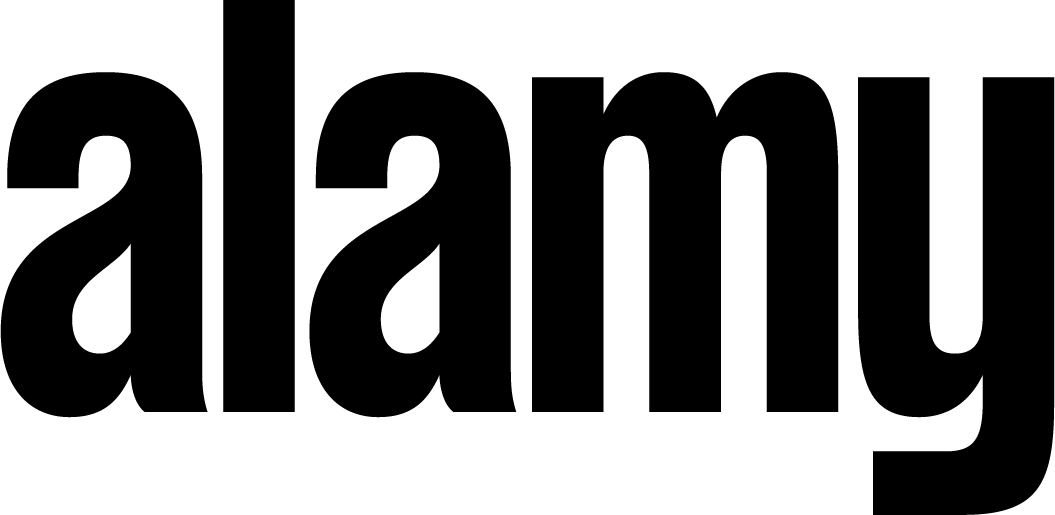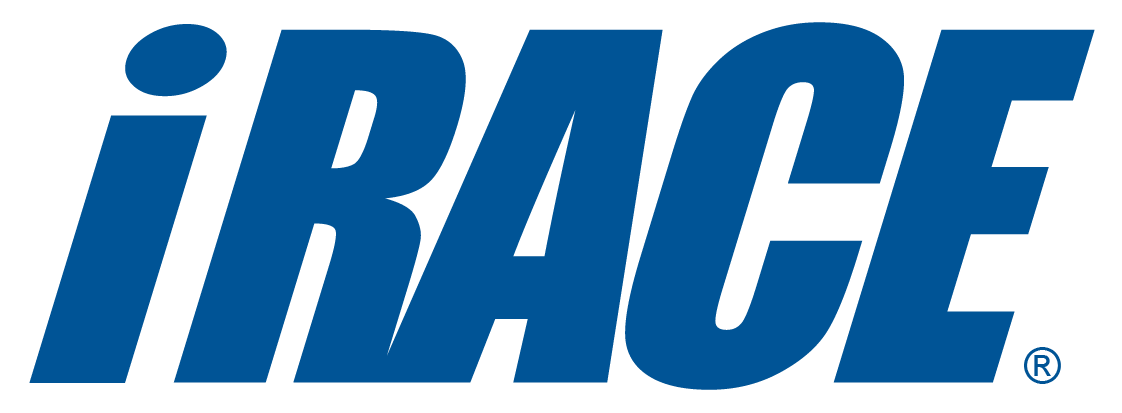PA: “Bringing Section 40 into force will simply enact an expensive and pointless injustice”
PA (the Press Association) – the national news agency for the UK and Ireland – has made its opposition clear to the implementation of Section 40 in its response to the government consultation on press regulation.
In its submission to the consultation, PA called on the government to repeal all of Section 40 of the Crime and Courts Act 2013. PA also reiterated its commitment to Ipso (the Independent Press Standards Organisation) – and rejected the need for Part 2 of the Leveson Inquiry.
If Section 40 was implemented, a publisher declining to join the new press regulator Impress would face paying the costs of both sides in privacy and libel cases – even if they successfully defended a legal action by showing their reporting was accurate and in the public interest.
Pete Clifton, Editor-in-Chief of PA, said:
“PA has been a champion of a free press for 150 years and we stand full square behind the campaign against Section 40 and Leveson 2.
“We are active members of the very effective Ipso, and that will always be our choice ahead of a state-appointed regulator, bank-rolled by one individual.
“The implementation of Section 40 would be ruinous for the media, particularly our precious local press, and anyone who believes in the freedom of the press in the UK should raise their voice in protest.
“As for Leveson 2, recent surveys suggest the public – who would end up paying for it – have little interest in another inquiry. Lots of lessons have been learned already and it is time to move on.”
‘An injustice enshrined in statute’
In its submission, PA compared the commencement of Section 40 with a return of the worst evils associated with the now discredited CFA scheme which allowed people to bring defamation and privacy actions on a ‘no win, no fee’ basis, and cites several examples of court rulings which included injurious costs. It said:
The same arguments as those against CFAs apply in relation to the proposed sanctions on the press contained in section 40, which the Press Association views as amounting to nothing less than an injustice enshrined in statute.
Potential claimants would doubtless be encouraged to bring weak or meritless claims against newspapers which were not signed up to a state-recognised regulator simply because they would expect that, win or lose, the newspaper would have to meet their costs. With the CFA regime, there was some limit, as solicitors and counsel cherry-picked the cases they took on to ensure as far as they could that they only worked on those which had a fair chance of success, because they would not be paid for an unsuccessful case. But the proposed section 40 regime contains no similar restraining factor, meaning that any newspaper could be subjected to meritless claim after meritless claim and be made to pay all the costs nonetheless.
‘A threat to the continued existence of PA’
Explaining that much of the funding for PA’s newsgathering activities comes from subscriptions paid by regional and national newspapers, PA stressed that its own existence was at risk if massive costs awarded against publications under Section 40 subsequently forced those publications to close. Citing figures which demonstrate the pressure the media industry is under, PA said:
…it is difficult to see how any government could believe that it would be fair, or just, to impose an order to pay all the costs of a privacy or defamation case on a newspaper which was not signed up to a recognised regulator, even if it were to win the case. The simple fact is that in many cases the newspaper simply would not survive such a financial blow.
‘Unwilling to submit to any form of government control’
PA’s editorial impartiality remains sacrosanct, and the agency remains committed to its membership and support of Ipso. Rejecting the government-endorsed regulator Impress, it said:
[PA]… has jealously to guard its independence, both from the risk of any public perception of some form of official role in reporting news and current affairs, and from the risk of any actual attempt by a government of whatever colour to control or dictate its activities…
[PA] is committed to the principle of a free press, and is unwilling to submit to any form of governmental oversight or control, including regulation by any organisation which is “recognised” by the Press Recognition Panel. Such regulation smacks too much of State regulation.
In addition, [PA] regards as unacceptable the risk that the current Government or some future government might decide to re-write the Royal Charter on Self-Regulation of the Press so as to introduce an even greater degree of State control. History is littered with too many examples of promises being made then broken…
[PA] is also owned by its subscribers – the national and regional press – and it would be bizarre in the extreme for it to join a regulator recognised by a Government panel but rejected by the vast majority of the industry.
‘Leveson 2: more regulation, more bureaucracy’
PA expressed its view that though it has nothing to fear from Leveson 2, taking forward the second part of the inquiry “would waste time and public money, and lead to a fresh slew of recommendations for the oversight of relationships and contact, with more regulation, more bureaucracy, and increasingly complex ‘systems’”. As such, PA recommends that the inquiry be terminated.
The full text of PA’s response to the government’s consultation on press regulation issues follows below.
Consultation on the Leveson Inquiry and its implementation
Question 1: Which of the following statements do you agree with:
Answer: (c) Government should ask Parliament to repeal all of section 40 now;
Question 2: Do you have evidence in support of your view, particularly in terms of the impacts on the press industry and claimants?
The Press Association believes that commencing section 40 of the crime and courts act 2013 will have a seriously chilling effect on freedom of expression of the national, regional and local press, and bring with it the return of the worst evils associated with the discredited Conditional Fee Agreement (CFA) scheme which allowed people to bring defamation and privacy actions on a no-win, no fee basis.
In Campbell v MGN Ltd ([2006] EMLR 1; [2005] 1 WLR 3394; [2005] 4 All ER 793), Lord Hoffmann described the CFA system as having a “blackmailing” effect [1]. He went on to explain how this happened:
First, the use of CFAs by impecunious claimants who do not take out ATE insurance. That, of course, is not a feature of the present case. If MGN are right about Ms Campbell’s means, she would have been able to pay their costs if she had lost. The second factor is the conduct of the case by the claimant’s solicitors in a way which not only runs up substantial costs but requires the defendants to do so as well. Faced with a free-spending claimant’s solicitor and being at risk not only as to liability but also as to twice the claimant’s costs, the defendant is faced with an arms race which makes it particularly unfair for the claimant afterwards to justify his conduct of the litigation on the ground that the defendant’s own costs were equally high.”
Another example of the CFA regime is the case which came to light in January 2010 in which law firm Withers, which represented a public relations consultant who won £5,000 in damages and an apology with a statement in open court from the publisher of the People, submitted a schedule for costs totalling £78,000. As part of the settlement the newspaper’s publisher, Mirror Group Newspapers (MGN), paid damages of £5,000 to a charity of Ms McGuinness’ choosing, and agreed to pay her legal costs. Its own costs amounted to £15,000.
Yet another example of the dangers is the case in 2005 in which David Miller, the Detective Chief Inspector who headed the inquiry into false claims by Nadine Milroy-Sloan that Neil and Christine Hamilton had sexually assaulted her, sued Associated Newspapers over stories which appeared in the Daily Mail and Evening Standard, both of which the publisher owned at the time. Had Associated Newspapers lost the case, it would have faced a total bill for costs of up to £4.5 million – a demand from Mr Miller for a total of £3,274,996 in costs, as well as its own, estimated at about £1.25 million, excluding VAT.
A further example is the case of Musa King v Telegraph in 2004. The Court of Appeal heard that Mr Musa King, who was being represented on a CFA and had no after-the-event insurance to cover any costs he might be ordered to pay should he lose, would only win a maximum £150,000 in damages if he was successful on every point in his action – but that the newspaper group would face costs of £1 million or so if it lost, because of the 100% success fee it expected would be charged. Even if it won, it would still be considerably out of pocket, as it would be unable to recoup its costs from Mr Musa King. In the event, the case finally settled, with Mr Musa King being paid £50,000 in damages and £10,000 in expenses.
Notably, in 2011 the European Court of Human Rights declared in the Campbell case that the fact that MGN was presented with a large bill for “success fees” by Ms Campbell’s lawyers as a result of representing her on a CFA for the proceedings in the House of Lords was a breach of the right to freedom of expression under Article 10 of the European Convention. It held that the requirement that the newspaper should pay success fees was disproportionate in relation to the legitimate aim the Government sought to achieve – increasing access to justice – and “exceeded even the broad margin of appreciation accorded to the Government in such matters”. Not merely that, but in June 2012 the Strasbourg court ordered the Government to pay MGN more than £200,000 in damages over the case, comprehensively rejecting its argument that the amounts sought by MGN were excessive.
The same arguments as those against CFAs apply in relation to the proposed sanctions on the press contained in section 40, which the Press Association views as amounting to nothing less than an injustice enshrined in statute.
Potential claimants would doubtless be encouraged to bring weak or meritless claims against newspapers which were not signed up to a state-recognised regulator simply because they would expect that, win or lose, the newspaper would have to meet their costs. With the CFA regime, there was some limit, as solicitors and counsel cherry-picked the cases they took on to ensure as far as they could that they only worked on those which had a fair chance of success, because they would not be paid for an unsuccessful case. But the proposed section 40 regime contains no similar restraining factor, meaning that any newspaper could be subjected to meritless claim after meritless claim and be made to pay all the costs nonetheless.
Many Peers and MPs appear to see the bringing into force of section 40 as the stick which accompanies the “carrot” being waved before the press to encourage it to sign up with a regulator recognised by the Press Recognition Panel established by the Royal Charter on Self-Regulation of the Press. This approach, however, brings with it a variety of problems.
First, as Sir Brian Leveson said in his report: “A new system of regulation should not be considered sufficiently effective if it does not cover all significant news publishers.” [2] There is already a press regulator which covers all significant news publishers – Ipso, the Independent Press Standards Organisation, which is chaired by Sir Alan Moses, a former Court of Appeal judge who was and is noted for his robust independence. Bringing section 40 into force will not turn the only other regulator, Impress, into a body which covers “all significant news publishers”, but will simply enact an expensive and pointless injustice.
Second, Sir Brian’s report calls for an “independent self-regulatory regime”. This recommendation is self-contradictory. Critics of Ipso say it is not independent because it is funded by the press industry and has journalists on its board. But equally, the only other regulator in the field, Impress, the Independent Monitor of the Press, cannot be described as self-regulation, as it is funded virtually entirely by Max Mosley, the former head of Formula One, whose only connection with the press industry appears to be an intense dislike of it, and is recognised by only a few hyper local news organisations which cannot be said by any stretch of the imagination to cover “all significant news publishers”.
There are also serious questions as to whether the Press Recognition Panel was in fact right in its decision to recognise Impress – a decision which might well lead to litigation in the near future.
Funding
The Press Association is a private company with 26 shareholders, most of which are national and regional newspaper publishers. Much of the funding for its newsgathering activities comes from subscriptions paid for its services by regional and national newspaper subscribers, as well as by broadcasters and website operators.
As has no doubt been pointed out by other media organisations, the award of massive costs against a local or regional newspapers could well threaten that publication’s continued existence.
It could also pose a threat to the continued existence of the Press Association. Every closure of a newspaper or news outlet means the loss to the Press Association of a subscriber, and the loss of that subscription income. Such shortfalls in funding have to be compensated for either by finding new sources of revenue, or by reducing costs and therefore services for remaining subscribers.
As is by now well known, the press industry in general is facing a crisis caused by a number of factors, including massive technological change. A study by Deloitte for the News Media Association, which represents the national, regional and local newspaper industry, showed that the industry generated some £5.1 billion in revenue in 2015 – a figure which represented just half the total generated in 2004. The study, which excluded the Financial Times, found that local and national newspapers and their websites contributed £5.3 billion to the UK economy in 2015 and accounted for 58 per cent of the total investment in news production. But it also detailed the challenges faced by newspaper publishers as their audiences move to digital formats and their income falls away, showing that 88 per cent of publishers’ revenues came from print and just 12 per cent from digital. The study also suggested that 87,500 jobs were dependent on the news industry, with 23,000 direct employees.
Research reported on the Press Gazette website in December 2016[3] said that 46 local and regional newspapers in the UK had closed since the beginning of 2015 – while 29 newspapers were launched, giving a net loss of 17 publications. Press Gazette also said that according to its own calculation, the UK had seen a net loss of 198 local newspapers since 2005. In addition, the number of journalists working on local newspapers was reckoned to have at least halved since 2005, while numerous daily titles had switched to weekly publication, and many weekly titles no longer had dedicated editorial teams, but shared resources across a group.
Given figures and details such as these, it is difficult to see how any government could believe that it would be fair, or just, to impose an order to pay all the costs of a privacy or defamation case on a newspaper which was not signed up to a recognised regulator, even if it were to win the case. The simple fact is that in many cases the newspaper simply would not survive such a financial blow.
Question 3: To what extent will full commencement incentivise publishers to join a recognised self-regulator? Please supply evidence.
The Press Association is committed to its membership, and support, of Ipso, the Independent Press Standards Organisation.
The Press Association, as the national news agency for Great Britain and Ireland, occupies a unique and at times difficult position in the national press and news media landscape.
The phrase “national news agency” might be taken by some to mean that the Press Association is in some way an arm of government – and in the past we have, for example, encountered civil servants who believed that it is part of or in some way linked to the Central Office of Information, which, until its closure in 2012, was the government department responsible for providing marketing and advertising services to other organisations in the public sector.
The Press Association therefore has jealously to guard its independence, both from the risk of any public perception of some form of official role in reporting news and current affairs, and from the risk of any actual attempt by a government of whatever colour to control or dictate its activities.
The Press Association is committed to the principle of a free press, and is unwilling to submit to any form of governmental oversight or control, including regulation by any organisation which is “recognised” by the Press Recognition Panel. Such regulation smacks too much of State regulation.
In addition, the Press Association regards as unacceptable the risk that the current Government or some future government might decide to re-write the Royal Charter on Self-Regulation of the Press so as to introduce an even greater degree of State control. History is littered with too many examples of promises being made then broken. Repeated attempts by members of the House of Lords to “ambush” legislation to insert provisions aimed at the press also demonstrate that the Government cannot guarantee that further attempts will not be made, or be defeated, in future.
The Press Association is proud of its record for accuracy and speed, and the integrity of its reporting. It regards the provisions in section 40 of the Crime and Courts Act 2013 as being both unacceptable and unjustifiable – it would be placed in the position of being obliged to pay all the claimant’s costs as well as its own for any defamation, privacy or harassment case brought against it even in the event that it were to prove that its reporting was accurate and justified, and, possibly, that the claimant had lied. The Press Association rarely faces such claims but believes that they are far more likely in an environment in which claimants are absolved of any responsibility for any costs they might incur in bringing a claim.
The Press Association is also owned by its subscribers – the national and regional press – and it would be bizarre in the extreme for it to join a regulator recognised by a Government panel but rejected by the vast majority of the industry.
Full commencement of section 40 will not persuade the Press Association to leave Ipso and join any regulator recognised under the Royal Charter.
Question 4: Do you believe that the terms of reference of Part 2 of the Leveson Inquiry have already been covered by Part 1 and the criminal investigations?
Yes.
Question 5: Do you have evidence in support of your view?
The Press Association believes that nothing more can be achieved by continuing with Part 2 of Leveson. All the main players who were in place in the police at that time have left, as have virtually all the journalists who might have been involved with them.
One clear effect to support this view is the revolution which has taken place in relations between the press and the police since Leveson 1. From a press point of view, relations are at an all-time low. Police consistently refuse to divulge information on even basic low-level crime, and treat all information which comes their way as being confidential, even when it clearly is not. A number of police forces – the Metropolitan Police and Police Scotland among them – are now known to have mis-used powers under Ripa, the Regulation of Investigatory Powers Act, to by-pass safeguards intended to protect journalistic sources. In the Police Scotland case this was done despite the senior officer responsible having been warned of the requirements to follow the proper procedures and obtain judicial approval for accessing communications data.[4]
It is a matter of public interest that the media and police should have mutually beneficial and helpful relationships without constant oversight or interference from so-called “media” or “communications” departments, and without having to note every conversation they have or every time they encounter each other.
The Press Association’s view is that the effects of the recommendations in Sir Brian Leveson’s first report on relations between police and press were both unworkable and counter-productive. Police now appear to regard journalists as being in some way “the enemy”, and friendly relationships between reporters and officers also appear to be being actively discouraged. Instead, information is passed, second-hand, through parrot-like press officers who repeat what they are told, are usually unable or unwilling to answer follow-up questions, and simply never know enough to be able to give useful guidance.
The Press Association’s policy always has been, is, and will continue to be, that it does not pay people for information for news and current affairs coverage. We do not pay police officers for information, just as we do not pay others, be they public officials, citizens, campaigners or whistle-blowers, who might contact us and offer information. We have nothing to fear from Leveson 2. But we do believe that taking the second part of the inquiry forward would be a waste of time and public money, and would not merely bring no benefits whatsoever, but would positively worsen the situation. Any inquiry is likely to result in a fresh slew of recommendations for oversight of relationships and contact, with more regulation, more bureaucracy, and increasingly complex “systems”. The intention might be to increase transparency, but the result will be a decrease in mutual trust, and a parallel fall in public trust in police services already viewed as being poor value for money and unanswerable to the public.
Question 6: Which of the two options set out below best represents your views (Tick box)
Terminate the inquiry.
[1] Paragraph 31
[2] Executive Summary, paragraph 22, page 35, and Part K, Chapter 7, para 3.14.
[3] http://www.pressgazette.co.uk/new-research-some-198-uk-local-newspapers-have-closed-since-2005/
[4] See: The decision of the Investigatory Powers Tribunal in David Moran, Steven Adams, Mr and Mrs O, Gerard and Marjorie Gallacher v Police Scotland [2016] UKIPTrib15_602-CH










